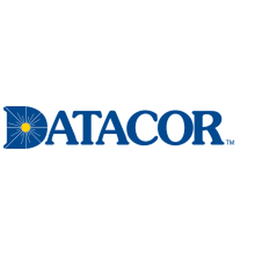Download PDF
Datacor Takes The Pain Out of Software Installation
Technology Category
- Functional Applications - Enterprise Resource Planning Systems (ERP)
Applicable Industries
- Chemicals
Applicable Functions
- Sales & Marketing
- Business Operation
Use Cases
- Supply Chain Visibility
- Inventory Management
Services
- Software Design & Engineering Services
- System Integration
The Challenge
Tilley Chemical was in search of a software solution that could seamlessly integrate their processes without causing major disruptions to their business operations. They had previously considered multiple vendors but had a long-standing relationship with Datacor, having purchased their Chempax software 15 years prior. The company needed a solution that would not only upgrade their existing software but also provide them with long-term support and an understanding of the specific needs of the chemical industry.
About The Customer
Tilley Chemical is a distributor of a wide range of industrial chemicals and solvents, including specialty chemicals for the food, pharmaceutical, and personal care industries. The company also distributes a complete line of industrial and automotive oils and lubricants from leading manufacturers. In 2006, Tilley Chemical was ranked among the top 100 chemical sales distributors in North America by Purchasing.com. The company was looking for a software solution that could seamlessly integrate their processes without causing major disruptions to their business operations.
The Solution
Tilley Chemical decided to purchase Chempax VB and eChempax software from Datacor. The installation process was smooth and did not disrupt the company's operations. The new software was up and running by the following Monday, eliminating the need to run parallel systems. The solution also allowed the company to maintain historical data. The software has led to workflow improvements such as paperless order entry and a reduction in overtime. The company also uses Datacor's eChempax solution, which provides their sales force with access to up-to-date customer account data virtually anywhere, anytime. This has resulted in better preparation for sales calls, reduced order errors, and fewer calls to the office, leading to fewer interruptions for office staff.
Operational Impact
Related Case Studies.

Case Study
Honeywell - Tata Chemicals Improves Data Accessibility with OneWireless
Tata was facing data accessibility challenges in the cement plant control room tapping signals from remote process control areas and other distant locations, including the gas scrubber. Tata needed a wireless solution to extend its control network securely to remote locations that would also provide seamless communication with existing control applications.

Case Study
Advanced Elastomer Systems Upgrades Production
In order to maintain its share of the international market for thermoplastic elastomers AES recently expanded its Florida plant by adding a new production line. While the existing lines were operating satisfactorily using a PROVOX distributed control system with traditional analog I/O, AES wanted advanced technology on the new line for greater economy, efficiency, and reliability. AES officials were anxious to get this line into production to meet incoming orders, but two hurricanes slowed construction.
Case Study
Wireless GPS Tracking & Security Monitoring
Enhancing the security of hazardous freight and ensuring compliance with Homeland Security’s Transportation Security Administration mandate that all trains carrying chemicals capable of creating a toxic inhalation condition are equipped with on-board safety monitoring systems.

Case Study
Field Device Asset Management For Chemical Company in China
Chinese chemical subsidiary of multinational corporation serves customers throughout the world. Sales offices and research and technology centers are strategically located to provide rapid response to customer requests. Just two workers were assigned to maintain thousands of intelligent instruments in three production units, so they could do little more than react to device issues as they appeared. This costly maintenance method inevitably led to unexpected downtime when a critical instrument failed. Plant management recognized the need to change from reactive to predictive maintenance for all assets, including instruments and control valves, but help was needed in implementing such a technology-based initiative.

Case Study
Industrial Workforce Mobility for Improved Safety & Operations
Huntsman Corporation, a global manufacturer and marketer of differentiated chemicals, undertook an aggressive program to eliminate injuries, product defects, and environmental releases at their Port Neches facility. Termed “Project Zero”, this program required a completely mobile solution to empower operations and maintenance personnel to capture defects, track work progress and make process and safety related decisions in real-time.






